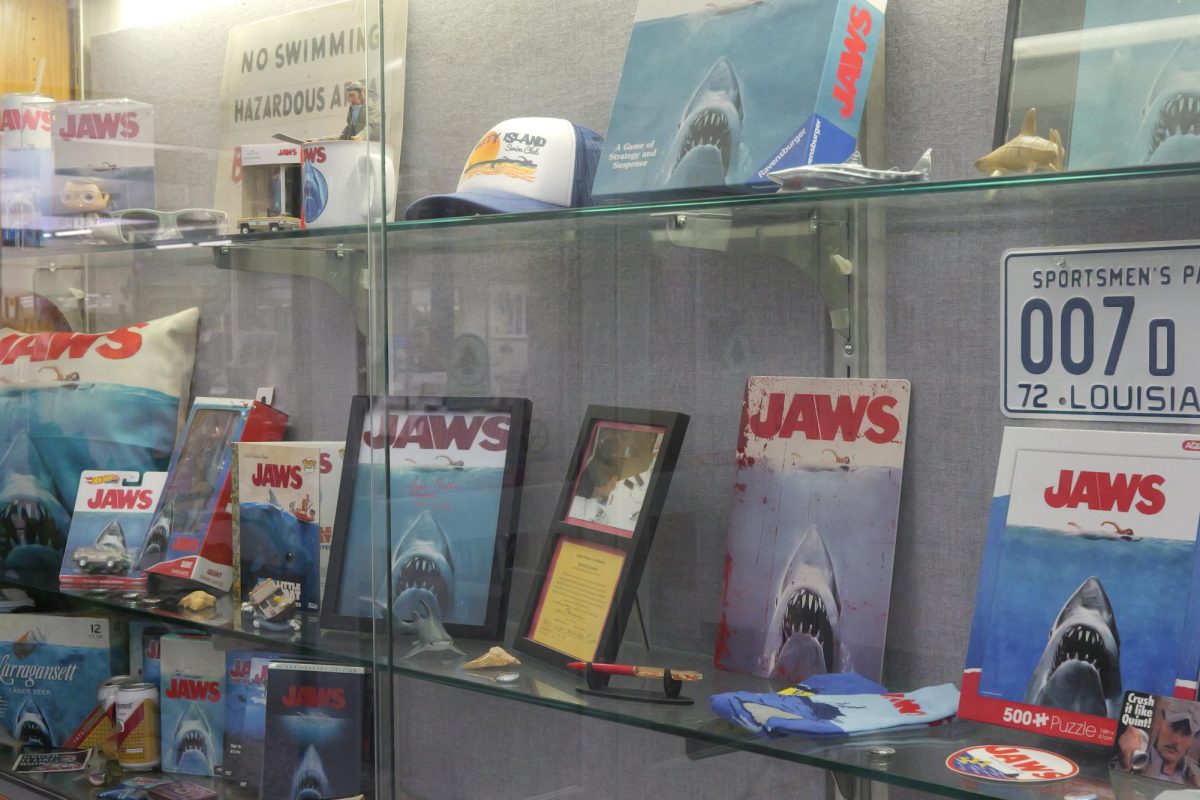Corporate advertising using provocative visuals to sell their jeans has added to the problem of women being sexualized.
Over the summer American Eagle came out with a new commercial. The popular “Euphoria” actress, Sydney Sweeney, is shown laying down in jeans and a long sleeve shirt as she is zipping up her pants while in a seductive position.
She mentions how jeans are passed down through offspring determining hair and eye color.
“My jeans are blue,” she said. Right after she finishes her line, American Eagle has subtitles saying, “Sydney Sweeney has great jeans.”
I find this disturbing as American Eagle is using a white, blonde and blue-eyed woman to say these lines while in a sexual position fully clothed.
She is setting impossible beauty standards by saying in the commercial “I have great jeans,” while suggesting she has great “genes.”
Most men are drawn to her ditzy tone and the way she makes eye contact with the camera. She’s giving men what they want, which is an intimate moment.
Jean Kilbourne is an expert on advertisements sexualizing women and has a book about how advertising changes the way we think and feel.
“The first is that sex is the only thing that matters, and the second is that sexuality belongs only to the young and beautiful,” she said.
Brooke Shields, a model who started at 11 years old, was approached by Calvin Klein’s team when she was 15 and asked if she wanted to model in jeans for the Calvin Klein ads.
In the ads she was dressed in jeans and a top that showed her whole torso while sexually suggesting, “You want to know what comes between me and my jeans? Nothing.”
The 15-year-old was advertising Calvin Klein jeans through sexual innuendos by the words she said and the physical position she was placed in.
Shields said how naive she was at the time and didn’t think anything of it. The adults behind the Calvin Klein commercial knew exactly what they were doing.
American Apparel is another example of big corporations sexualizing women. In the early 2000s, they showed their models partly clothed and in sexual positions.
In fact, the original founder of American Apparel, Dov Charney, was fired for allegations of sexual harassment by his employees.
The sexualization of women has always been around, but it has become more difficult as the ads add to the normalization of objectifying women. Women should have the right to walk down the street without the risk of being sexualized or objectified.
I could be in Sundance Square walking around having a good time and still feel unsafe if a man were to look at me in an odd way.
Some people say it’s because of how women are dressing these days, and that they’re the ones asking for attention. But it has always been like this since 1765, when women were legally owned by their husbands.
Dr. Squatch is a bar soap for men and is another example of ads sexualizing women. Once again Sweeney is in this commercial and created a scented bar soap made from her bathtub water.
Women like Sweeney need to truly understand the consequences when people make advertisements like the ones she has done.
It encourages men to feel as though they have a right to look at women a certain way.
Advertisements like this play a role in the sexualization of women and they need to be more aware of what it is they’re implying and selling, because it should only be about the jeans.



































